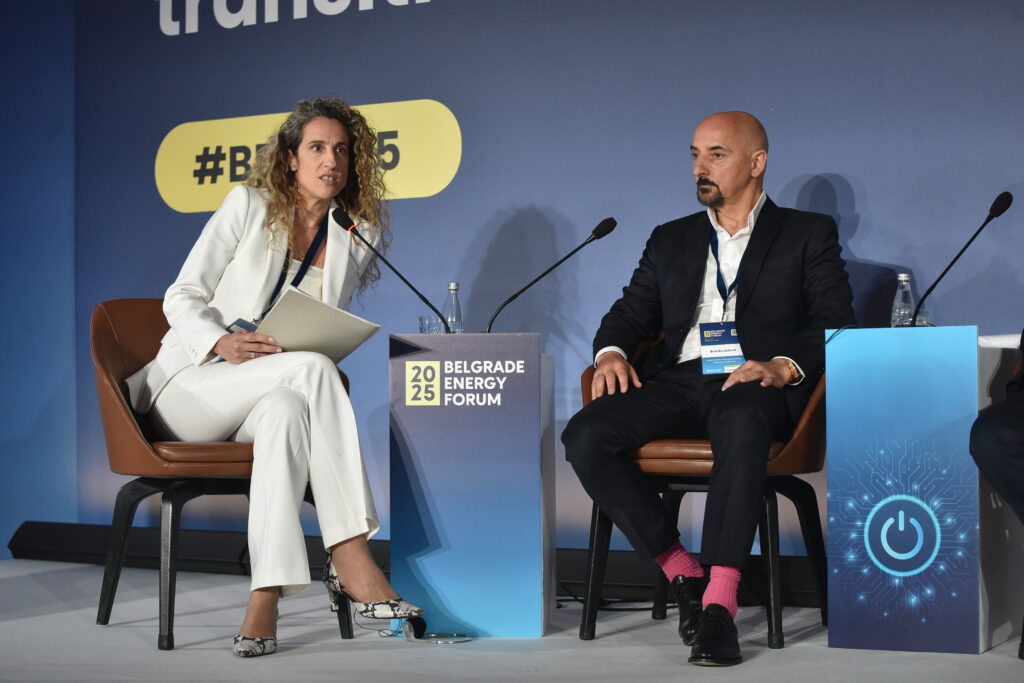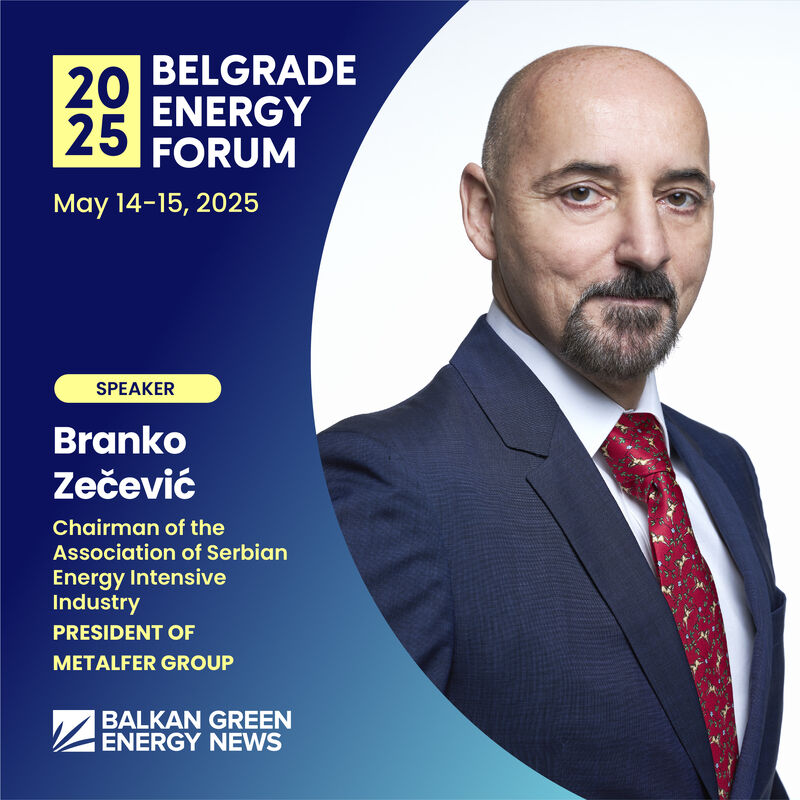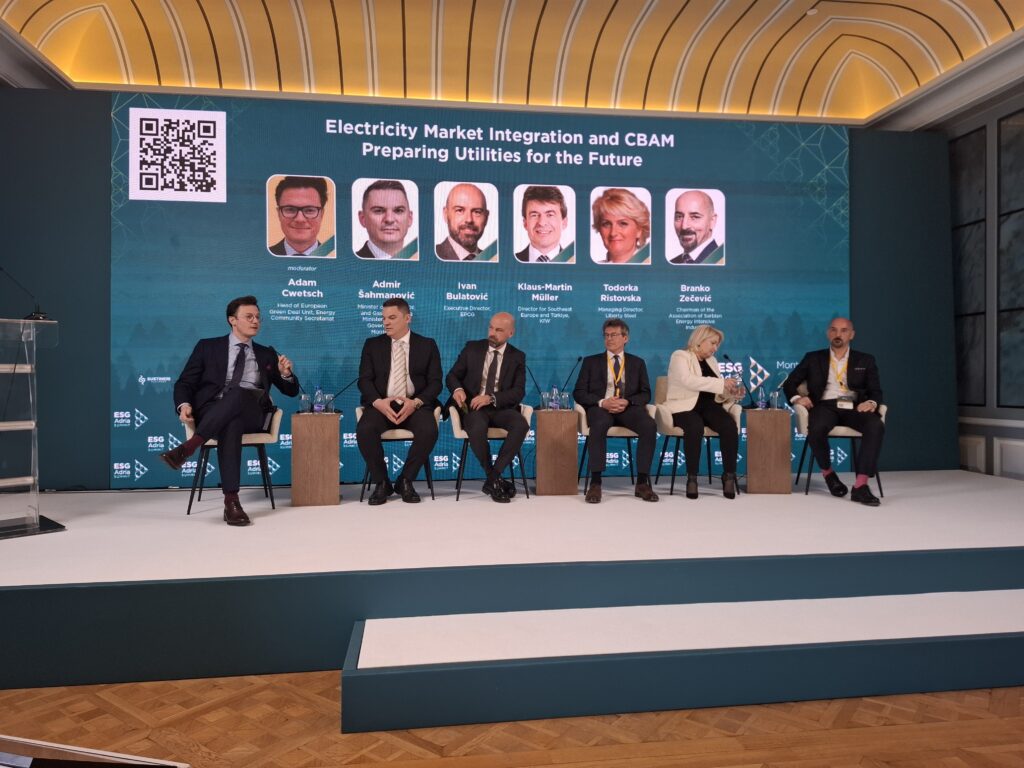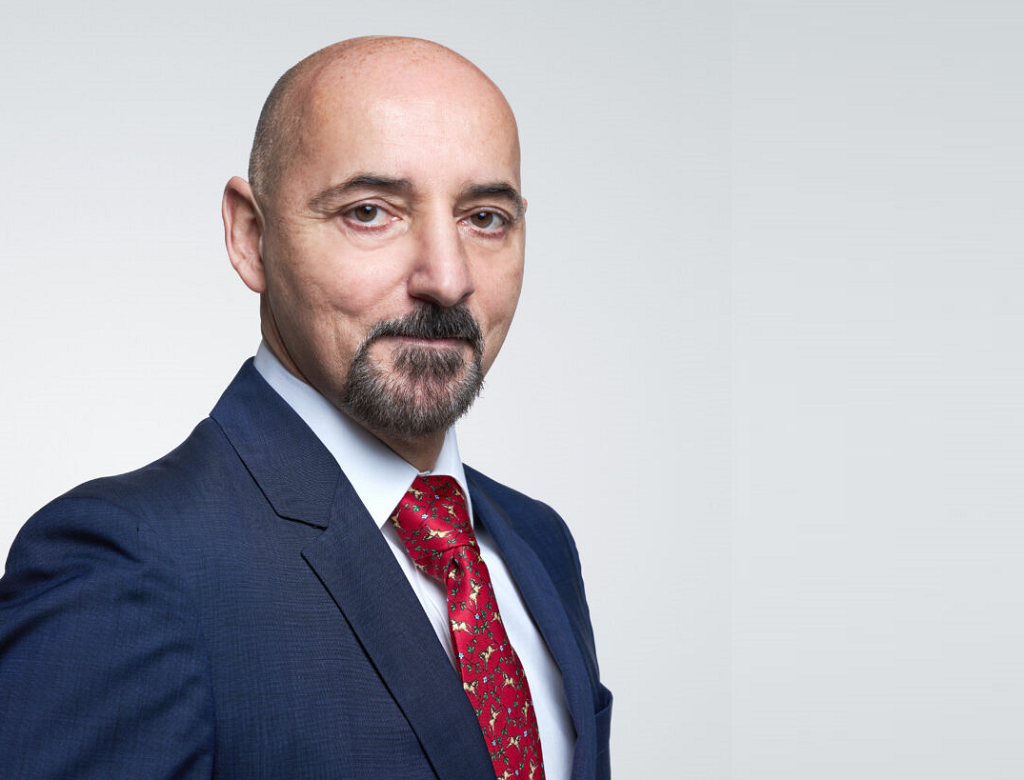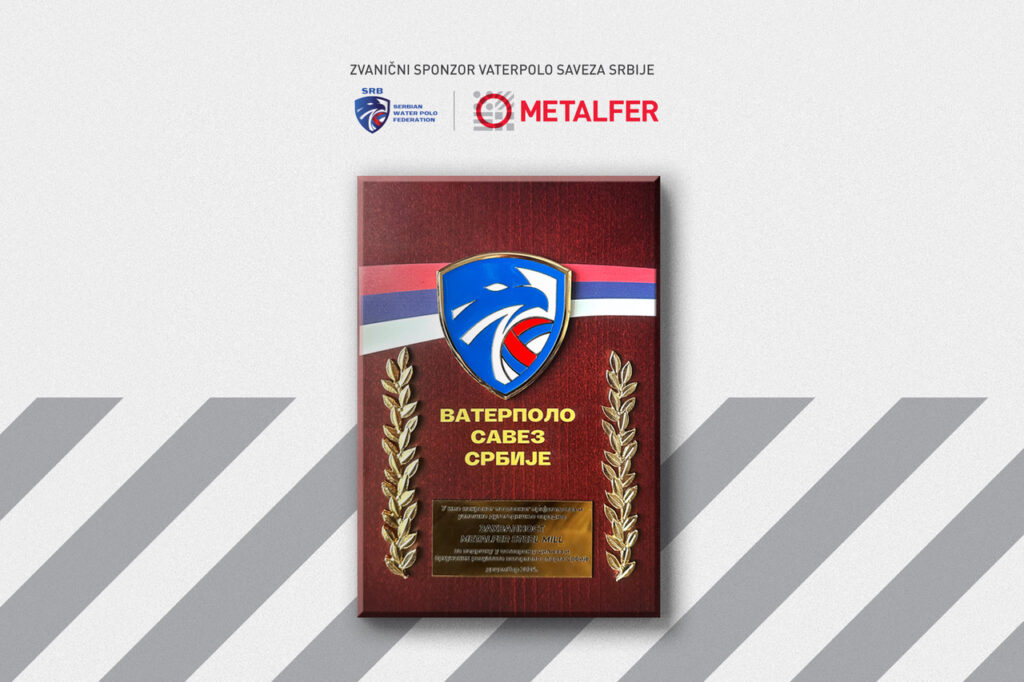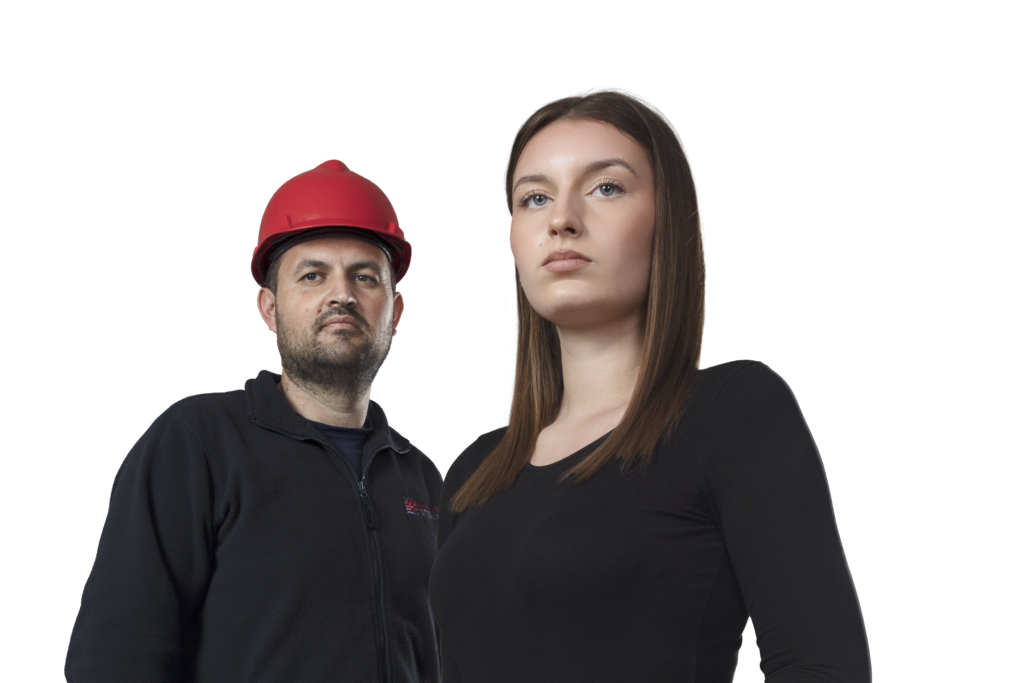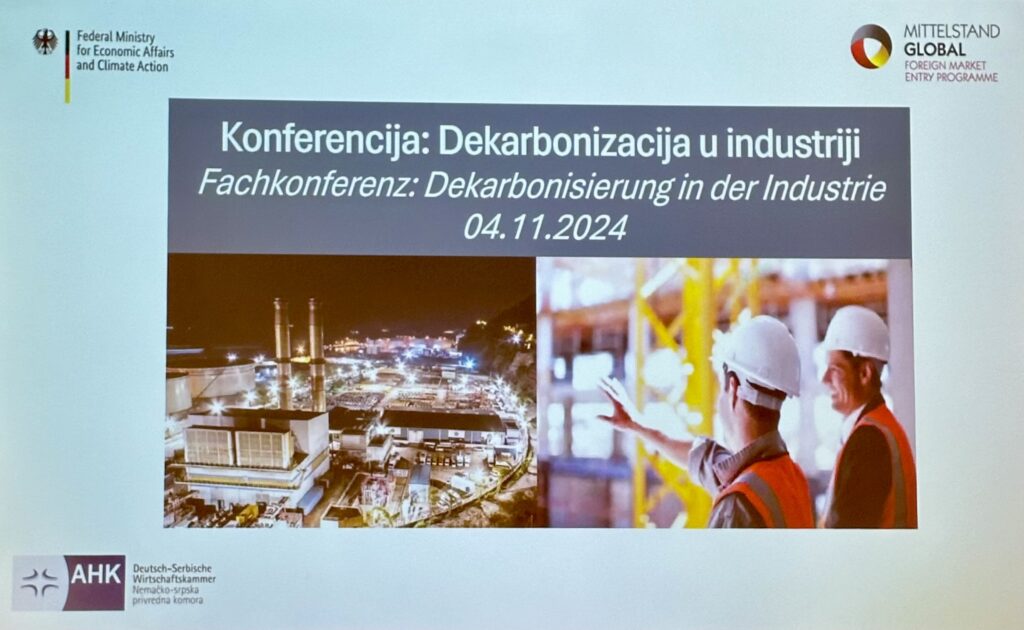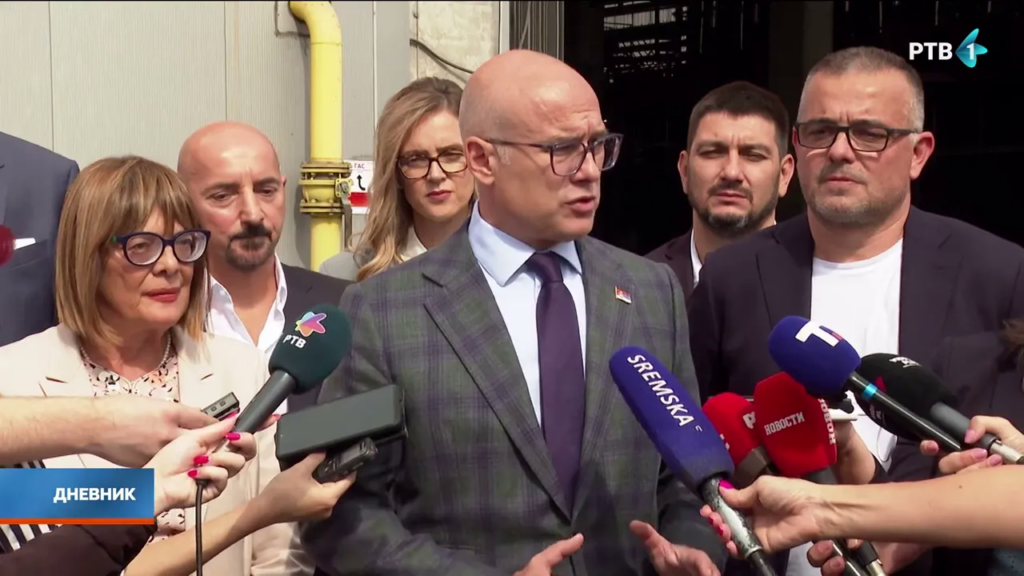At the recent conference “Nearshoring through Decarbonization in the Western Balkans – Private Sector Views on Challenges and Opportunities” in Budva, Metalfer Group took a prominent role in the panel discussion titled “Challenges and Answers: How to stay competitive through decarbonization and CBAM.” Representing the company, Мr. Nikola Jančevski presented an insightful analysis of Metalfer’s decarbonization efforts and the broader economic implications of these initiatives.
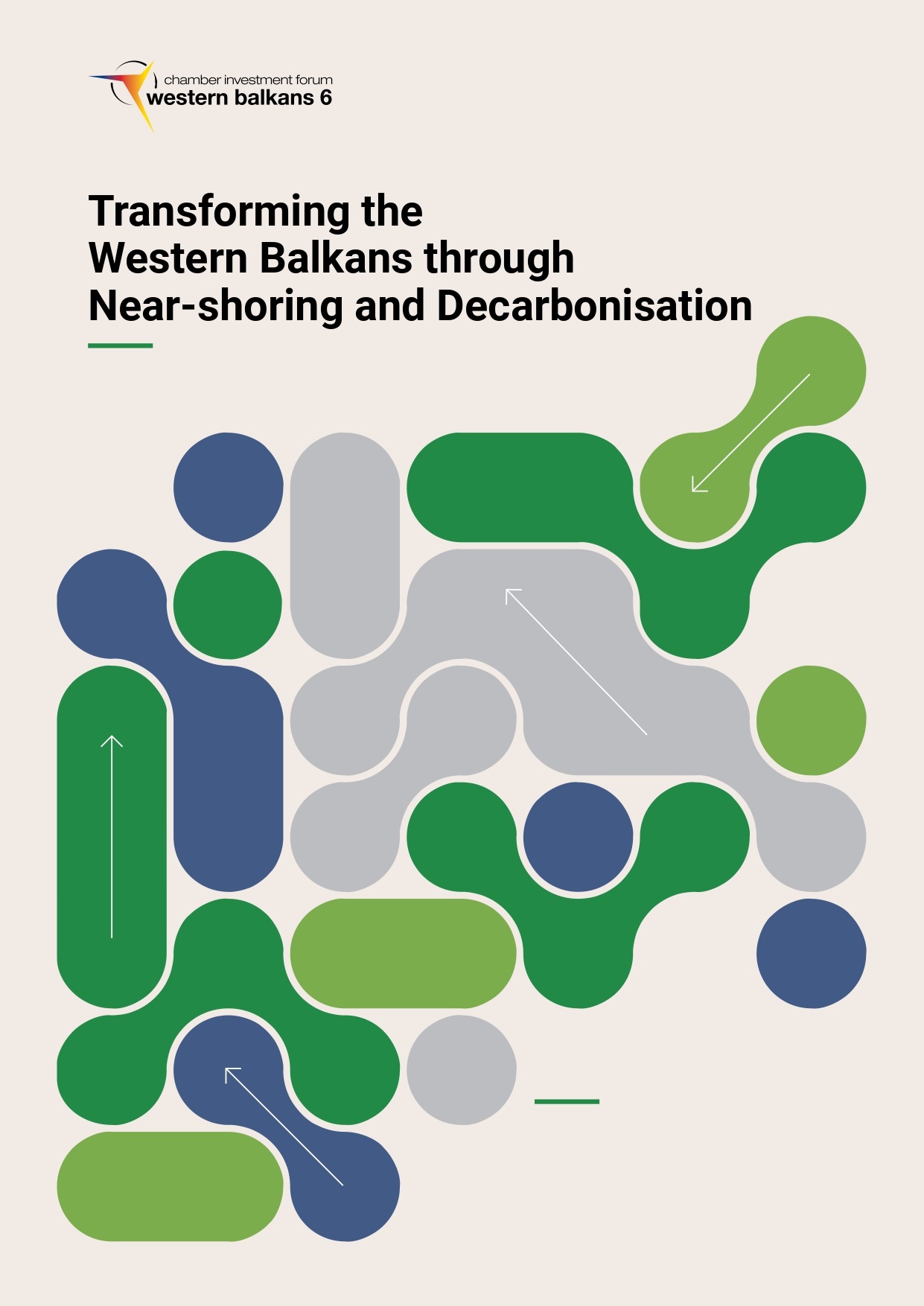
A focal point of Jančevski’s contribution was the delicate balance between the rising costs of decarbonization and maintaining competitive pricing in both local and international markets. While Metalfer Group has made significant strides in reducing its carbon footprint through the integration of state-of-the-art technologies, including new Rolling Mill facility, ongoing “Smart EAF” project, integration of renewable energy, resource optimization and circular economy, Jančevski emphasized the importance of regulatory alignment with the European Union’s Carbon Border Adjustment Mechanism (CBAM).
A crucial pivot: Aligning with CBAM for competitive advantage
According to Jančevski, Serbia’s future competitiveness depends heavily on the implementation of a regulatory framework that mirrors the EU’s CBAM. Without such a structure, there is a real danger that the local market could be flooded with low-cost, high-emission imports from countries with less stringent environmental controls. Such products, produced using outdated and carbon-intensive technologies, would undermine the competitive advantage of Serbian companies like Metalfer that have invested heavily in sustainable practices.
He argued that, while Metalfer has successfully reduced its CO2 emissions, thanks to its use EAF, ambitious waste-reduction strategies and integration of renewable energy, these efforts could be rendered ineffective if the Serbian market is exposed to cheaper, non-compliant goods. The challenge lies not only in maintaining competitive pricing but in safeguarding the investments Metalfer has made in clean technologies from being undercut by these carbon-intensive imports.
The economic case for regulatory reform
Metalfer’s strategy, as outlined by Jančevski, hinges on more than just technological innovation; it involves active advocacy for regulatory reform that supports decarbonization across all industries. By creating a regulatory landscape that mirrors the EU’s CBAM, Serbia would level the playing field for companies committed to sustainability. Furthermore, it would incentivize a market-wide shift toward cleaner technologies, ensuring that decarbonization efforts are not only viable but also economically advantageous.
In conclusion, Metalfer Group’s participation in the Budva conference underscored the broader economic and environmental implications of decarbonization. Jančevski’s call for regulatory alignment with the EU’s CBAM highlights a crucial aspect of the ongoing debate—sustainability must be supported by comprehensive policies that protect industries that are leading the charge. Metalfer’s dedication to decarbonization, coupled with its strategic advocacy for regulatory reforms, positions the company as a forward-thinking leader in the Balkan region’s transition to a low-carbon economy.
According to Jančevski, Serbia’s future competitiveness depends heavily on the implementation of a regulatory framework that mirrors the EU’s CBAM. Without such a structure, there is a real danger that the local market could be flooded with low-cost, high-emission imports from countries with less stringent environmental controls. Such products, produced using outdated and carbon-intensive technologies, would undermine the competitive advantage of Serbian companies like Metalfer that have invested heavily in sustainable practices.
He argued that, while Metalfer has successfully reduced its CO2 emissions, thanks to its use EAF, ambitious waste-reduction strategies and integration of renewable energy, these efforts could be rendered ineffective if the Serbian market is exposed to cheaper, non-compliant goods. The challenge lies not only in maintaining competitive pricing but in safeguarding the investments Metalfer has made in clean technologies from being undercut by these carbon-intensive imports.
The economic case for regulatory reform
Metalfer’s strategy, as outlined by Jančevski, hinges on more than just technological innovation; it involves active advocacy for regulatory reform that supports decarbonization across all industries. By creating a regulatory landscape that mirrors the EU’s CBAM, Serbia would level the playing field for companies committed to sustainability. Furthermore, it would incentivize a market-wide shift toward cleaner technologies, ensuring that decarbonization efforts are not only viable but also economically advantageous.
In conclusion, Metalfer Group’s participation in the Budva conference underscored the broader economic and environmental implications of decarbonization. Jančevski’s call for regulatory alignment with the EU’s CBAM highlights a crucial aspect of the ongoing debate—sustainability must be supported by comprehensive policies that protect industries that are leading the charge. Metalfer’s dedication to decarbonization, coupled with its strategic advocacy for regulatory reforms, positions the company as a forward-thinking leader in the Balkan region’s transition to a low-carbon economy.

